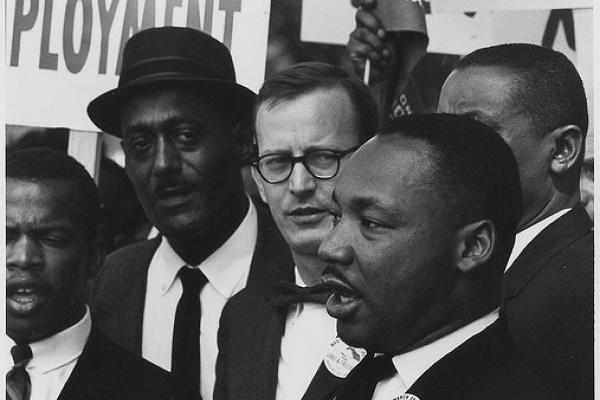If the latest Billboard album chart is anything to go by, the answer to Victor Hugo’s question “Do you hear the people sing”? is a resounding “Yes!” as the soundtrack to the latest film adaption of his novel has hit number one. More ambiguous however, is the answer to the question: do we understand what they are singing?
Many know of Dr. Rev. Martin Luther King Jr.’s “Letter from a Birmingham Jail.” Fewer know of Dr. King’s letter from a Selma jail where he wrote, “If we are to achieve a real equality, the U.S. will have to adopt a modified form of socialism.” This week will see President Obama sworn into office by laying his hand upon the Bible of America’s greatest preacher and prophet, M.L. King. If the appropriateness of King’s radical legacy being invoked by Obama goes beyond being skin deep, might we also ask the question: do we hear and understand the song Martin King sung?
As many blogs will brim with praise for Martin Luther King, Jr., with little mention of his politics, so too are they awash with praise for the latest Les Misérables film without mention of its vision for society. They praise Hugh Jackman and Anne Hathaway’s ability to blubber while beautifully belting out ballads. They have shown the Christian virtue of mercy to Russel Crowe’s singing (at least more mercy than the infamous critique of his musical ability by Australian punk band Frenzal Rhomb). All this before moving on to talk of Les Misérables’ less-than-subtle Christian themes.
As CNN reported, since the micro-targeted marketing success of movies like The Passion of the Christ, film studios have been courting Christians to exchange their pews for popcorn and Gospel songs for cinema going. Again, this time with Les Misérables, the faithful have responded to the box office like it was an altar call offered with Dr. King’s eloquence.
Read the Full Article

